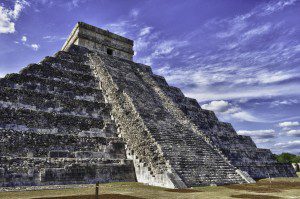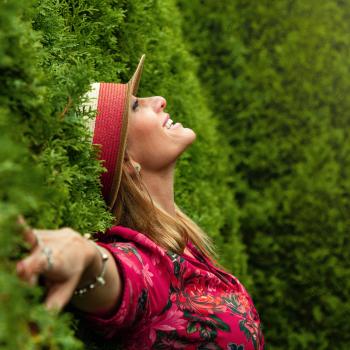If we can only plant the seeds we have inherited from our ancestors, grandparents, parents, or society in the garden of our own life, we may have to be careful what we allow to be planted. We may have to choose wise ly what we let take root in our lives.
ly what we let take root in our lives.
As Thich Nhat Hanh notes, we can receive seeds of all kinds, both good and bad. They can be seeds of joy, peace, and happiness, as well as seeds of sorrow, anger, and even hatred. What is needed, he says, is the practice of mindful living to help us separate the healthy seeds from the unhealthy seeds.
Planting healthy seeds is like having an antibody to a virus already in our bloodstream; when something unhealthy enters our bloodstream, our body reacts and antibodies come and surround it, take care of it, and transform it. This is also true with psychological seeds, as it is with spiritual seeds. If we plant wholesome, healing seeds, they will overcome the unhealthy seeds.
What we plant, we cultivate and reap the benefits of. Healthy seeds are antidotes to any unhealthy seeds that might try to gain traction in our lives. “To succeed, we need to cultivate a good reserve of refreshing seeds,” Thich Nhat Hanh says. Or, as Abdul-Baha has said, “Sincerity and love will conquer hate.” But this takes steady work. Sometimes the unhealthy seeds sneak in without us even being aware of it.
The spiritual heritage we can draw from is so rich and vast, and because we live in a world characterized by the clash of opposites, planting only healthy seeds can be quite daunting. Our task could be somewhat simplified if we consciously choose to plant only what we love in the garden of our lives.
This is because we become what we give our time to, as is illustrated in various scriptures: “All that we are arises with our thoughts. Speak or act with a pure mind and heart and happiness will follow you” (Buddhism). Or, “Where your treasure is, there will your heart be also” (Christianity).
What leads us forward and what shapes our destiny is what we love. We gain courage from what we love. Healthy growth requires removing anything that gets in the way of what we love. But cultivating what we do love is even more important. We cultivate to build the refreshing reserve that always protects us.
Many paths can lead us to the heart of our spiritual heritage, to the ageless wisdom that contains the essential principles, qualities, and attributes for spiritual growth. These are universal. Spiritual truth does not vary, in essence, from one religion to another because, at their origin, they have a common source.
This understanding can be seen in various spiritual traditions: “Many are the paths of men, but they all in the end come to Me” (Hinduism). “In the world there are many different roads, but the destination is the same” (Confucianism). “There are as many ways to God as souls; as many as the breaths of Adam’s sons” (Islam).
The scriptures of all the religions can guide us to get in touch with our true nature and with our Creator. Each tradition has similar principles, values, virtues, and spiritual qualities that can be easily identified from this collective spiritual heritage. Each tradition has similar guidance for taking the steps leading to spiritual growth, and each consists of some kind of regular or consistent spiritual practice.
In this age of instantaneous access to all the world’s wisdom, we all have at our fingertips a wealth of spiritual truth that will benefit not only our own spiritual growth but that of the everyone else, too, as in this gem of spiritual truth from Baha’u’llah:
“Be generous in prosperity, and thankful in adversity. Be worthy of the trust of thy neighbor. Be a treasure to the poor, an admonisher to the rich, an answerer of the cry of the needy… Be fair in thy judgment, and guarded in thy speech. Be as a joy to the sorrowful, a sea for the thirsty, a haven for the distressed, an upholder and defender of the victim of oppression. Be a home for the stranger, a balm to the suffering,… and eyes to the blind. Be an ornament to the countenance of truth… a breath of life to the body of mankind, an ensign of the hosts of justice, a luminary above the horizon of virtue, a dew to the soil of the human heart, an ark on the ocean of knowledge, a sun in the heaven of bounty, a gem on the diadem of wisdom, a shining light in the firmament of thy generation, a fruit upon the tree of humility.”













